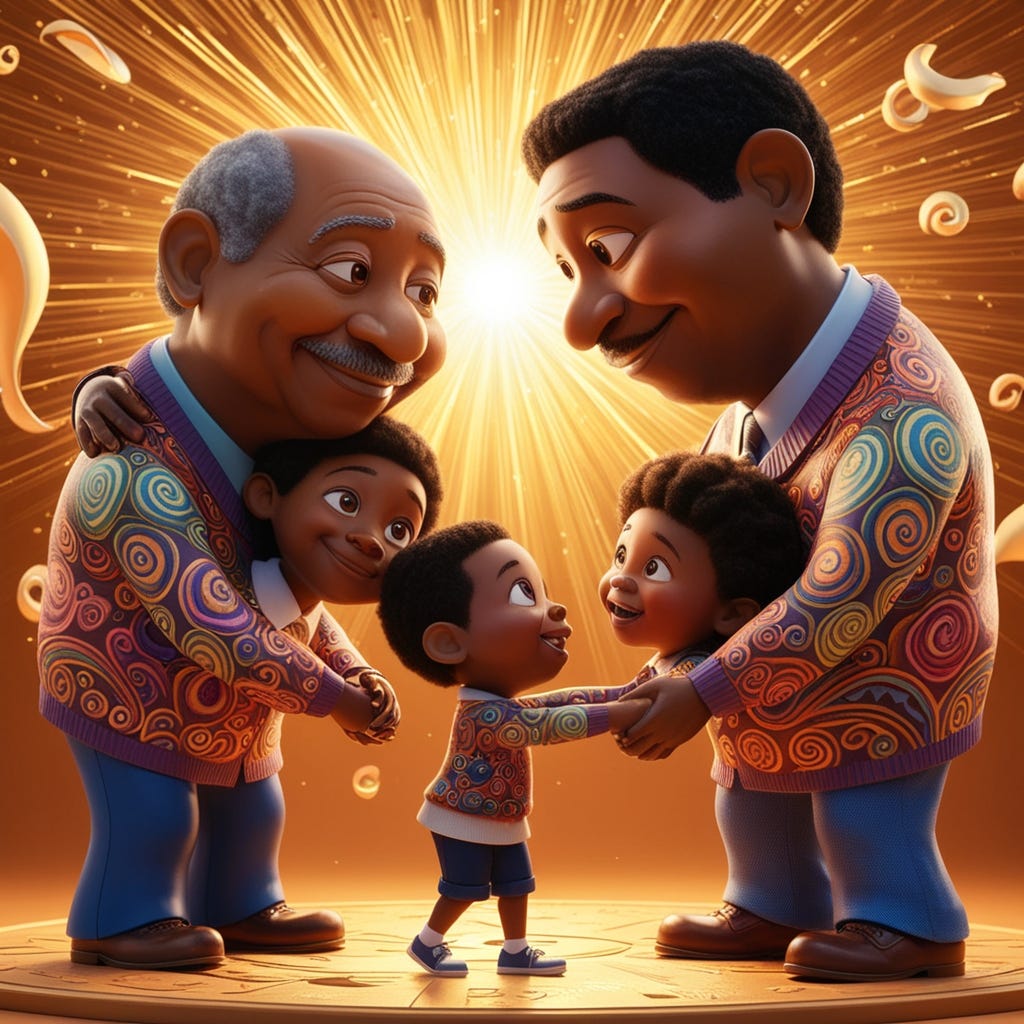If I have the opportunity to hug my dad, I will make it last eternity. My wife usually says, the hug does help, just that a few years ago, I lost him.
Recently, I found myself in a season of reflection, looking back at past experiences that might be shaping my present values, behaviors, and as it may affect the roles I play as a husband, father, son, brother, and even as an uncle. I realized that some of the patterns I absorbed from my dad as a son have subtly influenced the kind of father I have become. Before I delve deeper into this, let me share a few thoughts.
Looking back to make corrections is a powerful act. Many of us need to redefine moments that can build a stronger foundation for the next generation. Though I don't often use this platform for teaching, my hope is that my words will encourage, inspire, and perhaps spark acts of faith in someone who might feel alone or overwhelmed. Today, I might weave in a bit of teaching, but my primary goal is to share a piece of my journey.
During my recent reflections, one thing stood out: I can't recall many, if any, instances of receiving a hug from my dad. This isn’t to say he didn’t love me, far from it. It simply reflects a different way of expressing affection, one that many men from my part of the world might understand. Men from my part of the world are often subtly taught to suppress their emotions, to hold back tears, and to embody a kind of, i think the right word will be “stoic” strength. I’ve heard people say things like, “Be a man” when someone is mourning, tears are actually signs of weakness. Yet, if tears were unnecessary, why would God have made them a part of our humanity? For me, tears have always been a critical part of my healing process. Even the Bible, in John 11:35, records that Jesus wept. Some people, however, might argue that He did not shed tears.
When our children are small, we hold them close, carry them in our arms, and toss them onto our shoulders without hesitation. Yet, as they grow, this physical affection often fades, replaced by the sense that providing for them is enough to communicate our love. I see this in myself. I struggle to hug my boys, even when they reach out during our bedtime prayers. I realized that this hesitation is a pattern I inherited, perhaps passed down through generations of fathers in my family.
The truth is, I don’t know when this pattern began for my dad—was it his father, his grandfather, or even further back? What I do know is that it took a period of reflection for me to recognize it in my own life. It’s one thing to pray for change, but another to deliberately break the cycle and establish a new foundation for the next generation.
In a leadership course I’m currently part of, a question was posed: “Is there such a thing as curses or covenants?” Most of the participants, coming from a context where these ideas are less culturally significant, said no. I suggested we replace the words “curses and covenants” with “patterns,” and the room’s energy shifted. Suddenly, people began to see connections; health issues, financial struggles, even relationship dynamics that echoed across multiple generations. They could trace patterns from their grandparents to their parents, and now to themselves. I have seen girls who could not stand their mom because they felt she didn’t let them be, yet, they themselves have grown up to be moms whose daughters cannot stand.
The point here isn’t to dwell on the past but to identify areas where we can make intentional, positive changes. Are there things in your life that require you to set aside pride or rigidity, to show a more vulnerable side so that others around you can find healing? Are you willing to break cycles that might have been unconsciously passed down to you?
Consider Thomas, one of Jesus’ disciples. When he struggled with doubt, Jesus didn’t simply dismiss him, nor did He expect Thomas to catch up on faith by osmosis. Instead, He met Thomas where he was, offering a tangible encounter to bridge the gap (John 20:27).
Then He says to Thomas, "Bring your finger here, and see My hands; and bring your hand, and put it into My side; and be not unbelieving, but believing." BLB
Jesus knew He needed to create a moment of a physical action to replicate that same level of faith others believed in before seeing. Everyone is important in the scheme of things.
In the same way, we must sometimes step into the uncomfortable, vulnerable spaces of our lives to truly break patterns and pass on a healthier legacy.
Who have you become, and who are you becoming?
Thank you for joining us on this journey of reflection. If this piece spoke to you, I encourage you to share it with others who might need a gentle nudge to break free from their own patterns. And if you’d like to walk this path of growth and faith together, consider subscribing for more reflections like this. Let’s build a stronger, more intentional future and environment together.
I love you but the Lord loves you more than I do.
Uduak





